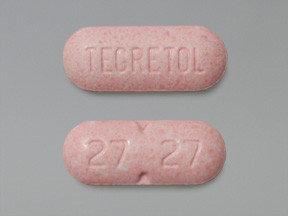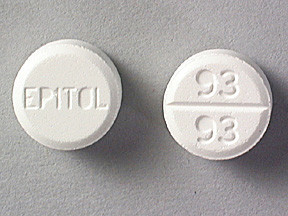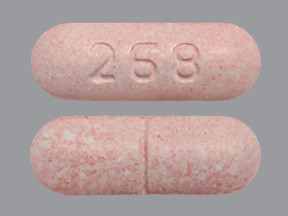CARBAMAZEPINE - ORAL
PHONETIC PRONUNCIATION: (KAR-ba-MAZ-e-peen)
COMMON BRAND NAME(S): Tegretol
GENERIC NAME(S): carbamazepine
Uses
USES: Carbamazepine is used to prevent and control seizures. This medication is known as an anticonvulsant or anti-epileptic drug. It is also used to relieve certain types of nerve pain (such as trigeminal neuralgia). This medication works by reducing the spread of seizure activity in the brain and restoring the normal balance of nerve activity.
How to use CARBAMAZEPINE - ORAL
HOW TO USE: Read the Medication Guide provided by your pharmacist before you start using carbamazepine and each time you get a refill. If you have any questions, ask your doctor or pharmacist. Take this medication by mouth with food as directed by your doctor. The dosage is based on your medical condition and response to treatment. To reduce your risk of side effects, your doctor may direct you to start this medication at a low dose and gradually increase your dose. Follow your doctor's instructions carefully. Avoid eating grapefruit or drinking grapefruit juice while using this medication unless your doctor or pharmacist says you may do so safely. Grapefruit can increase the chance of side effects with this medicine. Ask your doctor or pharmacist for more details. Take this medication regularly to get the most benefit from it. To help you remember, take it at the same times each day. Keep taking this medication even if you feel well. Do not stop taking this medication without consulting your doctor. Some conditions (such as seizures) may become worse when this drug is suddenly stopped. Your dose may need to be gradually decreased. Tell your doctor if your condition does not get better or if it gets worse.
Side Effects
Precautions
Interactions
Overdose
Images
Reviews
Faq for CARBAMAZEPINE - ORAL
Carbamazepine is used to treat certain types of seizures (epilepsy) and nerve pain (trigeminal neuralgia).
Take carbamazepine exactly as prescribed by your doctor. Do not increase or decrease the dose without consulting your doctor. It is usually taken with food to minimize stomach upset.
Common side effects of carbamazepine may include dizziness, drowsiness, nausea, vomiting, headache, blurred vision, and dry mouth. Inform your doctor if these side effects persist or worsen.
Yes, carbamazepine can interact with several medications including antidepressants, antifungal drugs, birth control pills, certain HIV drugs, and many others. Inform your doctor about all the medications you are taking to avoid potential drug interactions.
Rarely, carbamazepine can cause serious allergic reactions such as a rash, itching, swelling, severe dizziness, or trouble breathing. Seek immediate medical attention if you experience any of these symptoms.
The effects of carbamazepine may be seen within a few days to a few weeks. However, it may take several weeks or months for the full benefits to be achieved. Continue taking the medication as prescribed, even if you feel well.
It is generally recommended to avoid alcohol while taking carbamazepine as it may increase the risk of side effects such as drowsiness and dizziness.
Yes, carbamazepine may lower the body's ability to fight infections. It is important to inform your doctor about any infections or symptoms of infections that you may experience while taking this medication.
Carbamazepine may cause harm to an unborn baby. It is important to discuss the potential risks and benefits with your doctor if you are pregnant or planning to become pregnant while taking this medication.
Warning
WARNING: Carbamazepine may rarely cause very serious (possibly fatal) skin reactions. Some people in certain ethnic groups (such as people of Asian/South Asian descent) are at greater risk. Your doctor may order a blood test to measure your risk before you start this medication. If the blood test shows you are at greater risk, your doctor should discuss the risks and benefits of carbamazepine and other treatment choices with you. Such skin reactions have developed mostly within the first few months of treatment. Get medical help right away if you develop any of the following symptoms: skin rash/blisters/peeling, itching, or swelling. Ask your doctor or pharmacist for more details. This drug has rarely caused very serious blood disorders (aplastic anemia, agranulocytosis). Your doctor will monitor your blood counts to minimize the chance of these side effects. Keep all medical and lab appointments. Get medical help right away if any of these rare but very serious side effects occur: signs of infection (such as sore throat that doesn't go away, fever, swollen lymph nodes), unusual weakness/tiredness, shortness of breath, or easy bleeding/bruising.
Disclaimer
IMPORTANT: HOW TO USE THIS INFORMATION: This is a summary and does NOT have all possible information about this product. This information does not assure that this product is safe, effective, or appropriate for you. This information is not individual medical advice and does not substitute for the advice of your health care professional. Always ask your health care professional for complete information about this product and your specific health needs.




No Reviews Yet